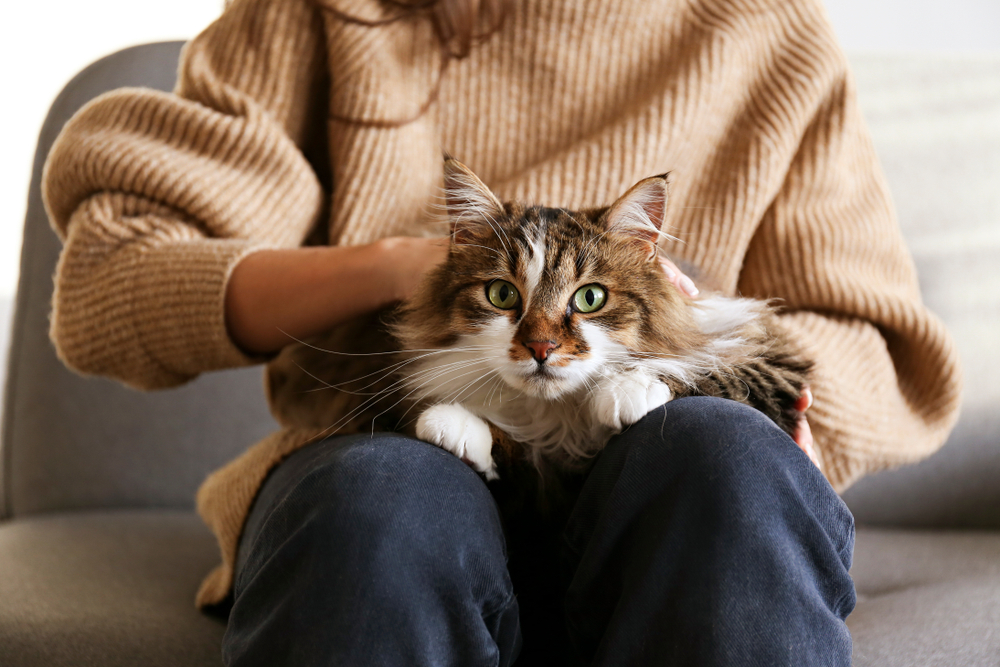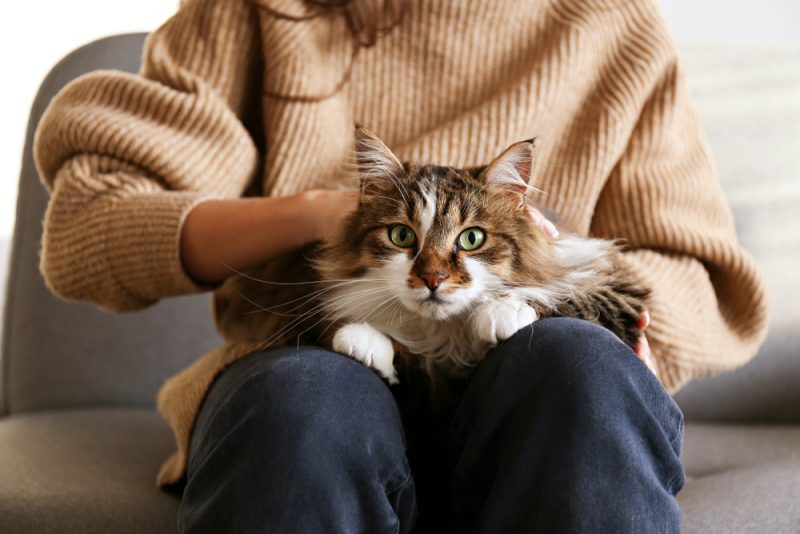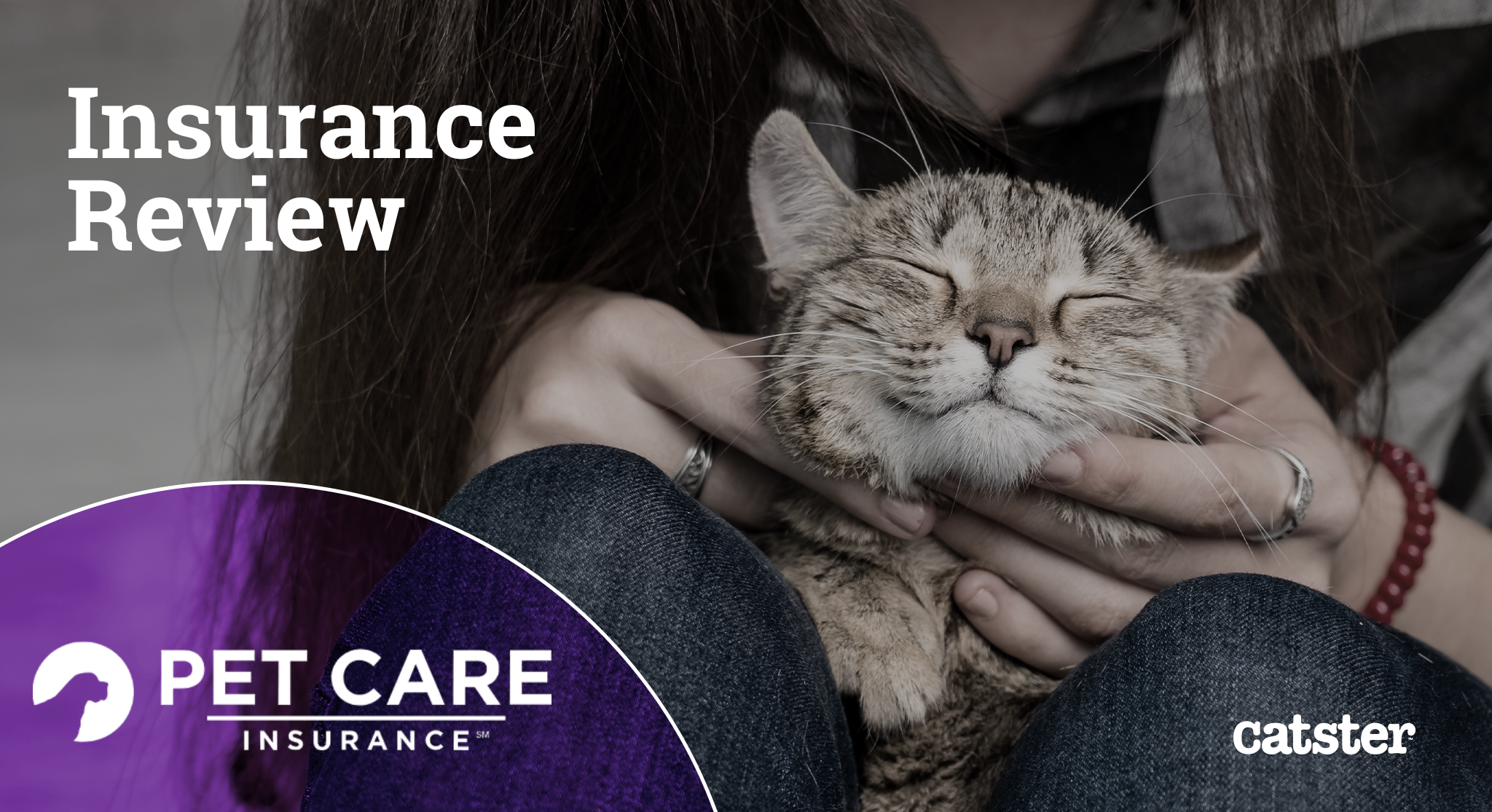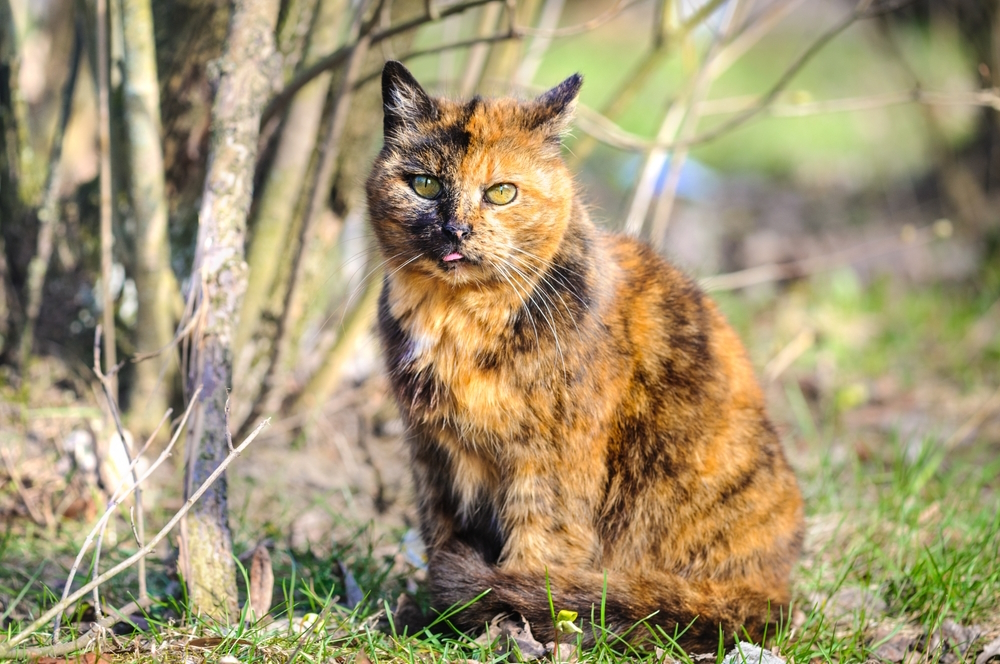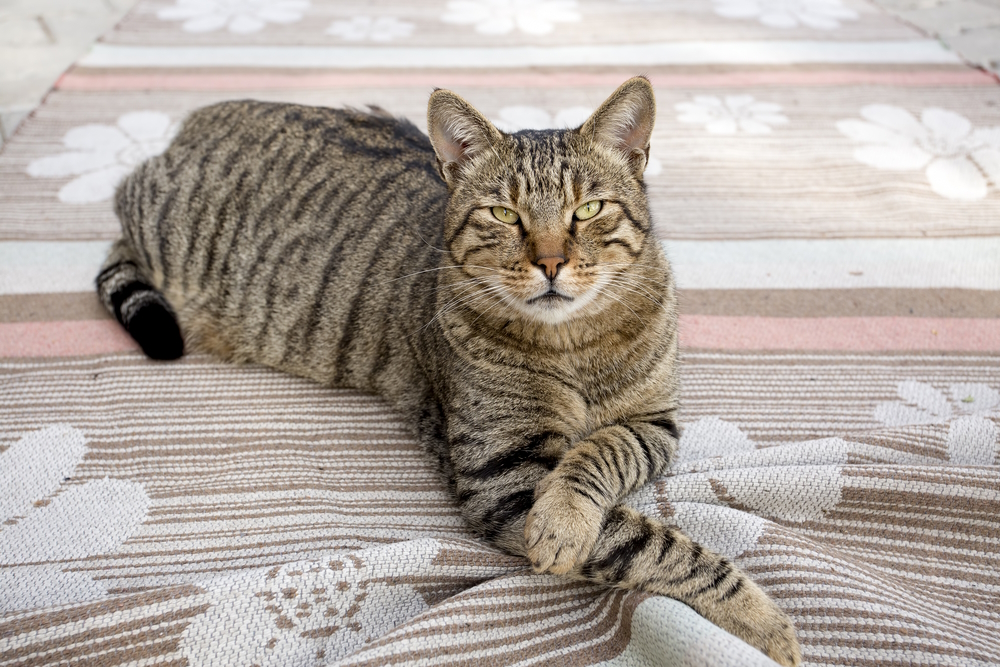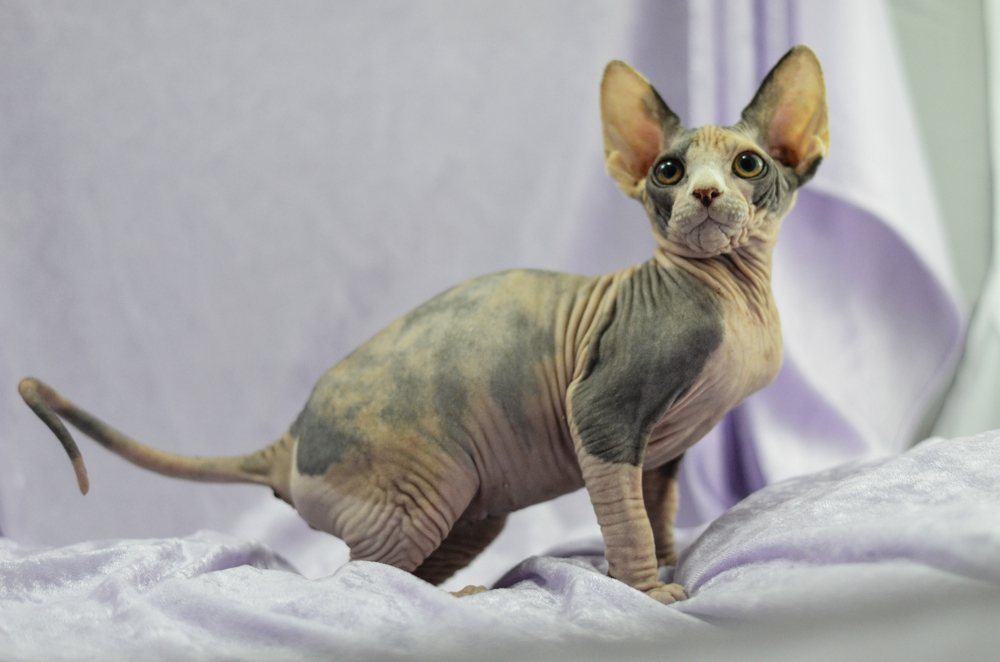Click to Skip Ahead
Cats are curious and mischievous little creatures. Has yours ever stared at the wall with such voracity that you’re confident they’re seeing something you can’t? Or how about when they activate their turbo boosters and peel out of the litter box at top speed, scattering litter particles throughout your home? While we can’t know for sure the driving forces behind such behaviors, experts can make a guess, which is what they often do when it comes to feline behaviors and emotions.
If you’re like most cat owners, you’ve probably wondered what your kitty thinks about you. Do they love you as strongly as you love them? Do they think of you as their servant? While experts cannot say for sure what your cat thinks of you, they can make educated guesses, and the consensus is that cats look to their human caregivers as family members. Read on to learn more about what science has to say about the inner workings of a cat’s mind.

What Does My Cat Think of Me?
Experts in feline behavior have differing opinions about what our cats think of humans.
Cats Don’t Treat Us Differently
John Bradshaw, the author of Cat Sense, recently shared with National Geographic that no research currently shows that cats have a separate box they put us in when they communicate with us 1. Dogs, on the other hand, have been thoroughly examined, with research showing they view humans differently than they do themselves. When dogs see a human, their behavior changes right away. The way they play with their owners is very different from the way they play with other dogs.
Bradshaw says that cats know we’re bigger than them, but they don’t change their behaviors much when they socialize with us compared to communicating with other cats. For example, the behaviors they engage in with us—walking with an upright tail, rubbing at our legs, and grooming us—are the same things cats do to one another.
Conclusions can then be drawn that cats look at us like they do other cats. This may mean they consider us an extension of their furry feline family members.
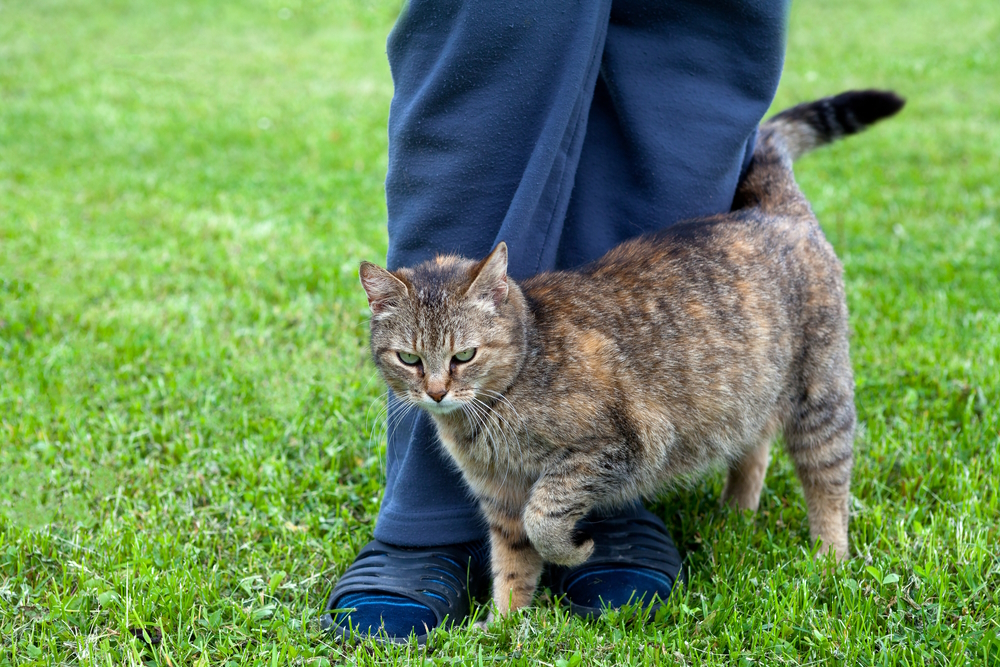
Cats Develop Mother/Baby Attachments With Their Caregivers
A 2019 study found that cats can form attachments to their humans the same way that human babies do to their mothers. Researchers found that cats show a similar capacity for creating secure and insecure attachments toward their humans, which was previously demonstrated in children and dogs.
Cats Love Their Caregivers
Cats naturally feel affection toward their human caregivers, who feed, look after, and play with them. They let us know this in their own subtle (and not-so-subtle) ways. They have their own way of communicating, and if you know what to look for, you’ll be able to tell when they’re trying to tell you they love and appreciate you.
- Following you around
- Grooming you
- Head bunts
- Kneading you
- Purring
- Showing the belly
- Slow blinking at you
- Tail held high


What Do Cats Think About?
While cats may not be as intelligent as their canine counterparts, their intelligence is nothing to scoff at.
The World Around Them
Perhaps one of the most interesting aspects of feline intelligence is their capacity for object permanence. This refers to a cat’s ability to understand that when something (or someone) isn’t in their direct view, it still exists. This was an essential skill for your cat’s wild ancestors, who relied on their hunting skills for survival. Giving up on the hunt because the prey disappeared would certainly not have been very beneficial.
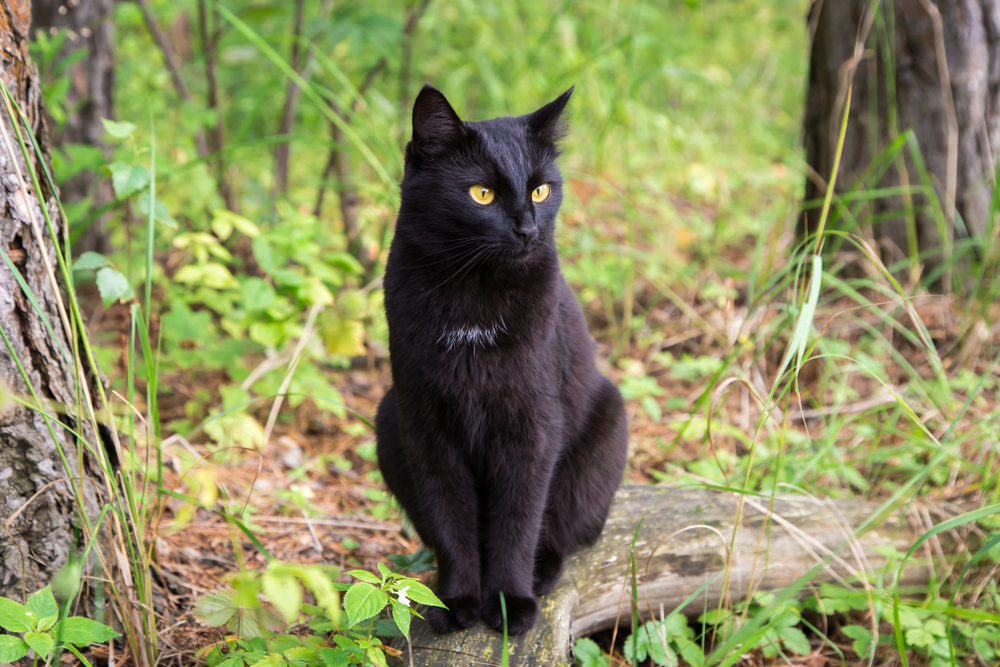
Their Humans
While your spoiled kitty likely doesn’t have to hunt for their next meal, their capacity for object permanence will come into play when you’re away from home. They’re, therefore, likely to think about you and even miss you when you’re not physically with them.
The Past
Studies show that cats have a pretty impressive memory. Their short-term memories aren’t particularly useful for long (10 to 30 seconds), though their capacity for long-term memories appears to have repeat value for the future. For example, this study found that a cat’s short-term memory fades within 10 to 30 seconds, and their ability to find hidden objects disappears entirely after one minute.
However, cats can recall their long-term memories to help them navigate certain situations. For example, they may remember a scary encounter with a dog to help them with similar situations in the future.
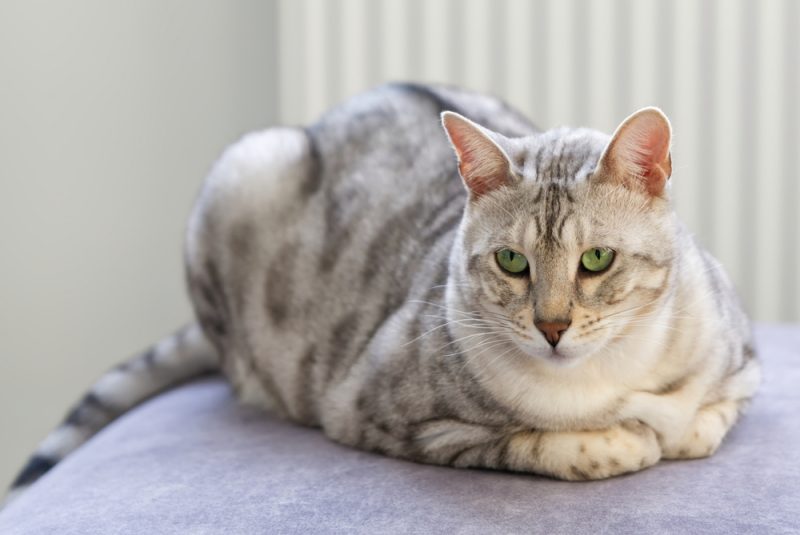
The Very Near Future
While it’s generally believed that cats live in the present and not in the future, they can still predict what may happen…to an extent.
Cats are creatures of habit, so they sometimes know when certain events will occur based on specific cues. For example, if you have your pet’s food in a particular drawer, they’ll know it’s almost food time when they hear you open the drawer. This is why cats often come running as soon as they hear a can opening; they associate the noise of the lid being peeled back with their meal.
Your cat likely also knows when you leave for work and may also have a rough idea of when you’ll be home.

Why Do We Know So Little About Cat’s Brains?
Dogs are relatively simple to study as they can be toted to a laboratory and remain content being the subject of research. Cats, however, are highly territorial creatures. Their behavior can be modified extensively by the environment they’re in. For example, your kitty may have an entirely different personality at home than they do at the veterinary clinic. The same applies if you move a test subject to a lab—the behavior you’ll see isn’t typically reflective of their normal behaviors.
Additionally, cats are under-researched due to the stigma surrounding them. Cats have been unfairly vilified throughout human history. For example, they were feared and thought to indicate the presence of evil during the 16th century.
- Biases due to the perceived nature of cats (e.g., aloofness, independence)
- Perceived “untrainable” nature
- Not as many cat breeds as dog breeds (making it more challenging to study inherited diseases)

Final Thoughts
So, what do cats think about humans? They greet and treat us the same way they do other cats, so it appears as if they consider us to be a bigger, less furry part of their feline family. Not only do they look at us as family members, but some look at us as if we’re their mothers. They form attachments with their caregivers as strongly as babies do with their mothers.
Featured Image Credit: evrymmnt, Shutterstock

